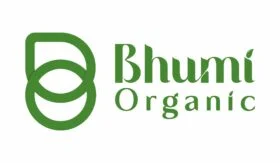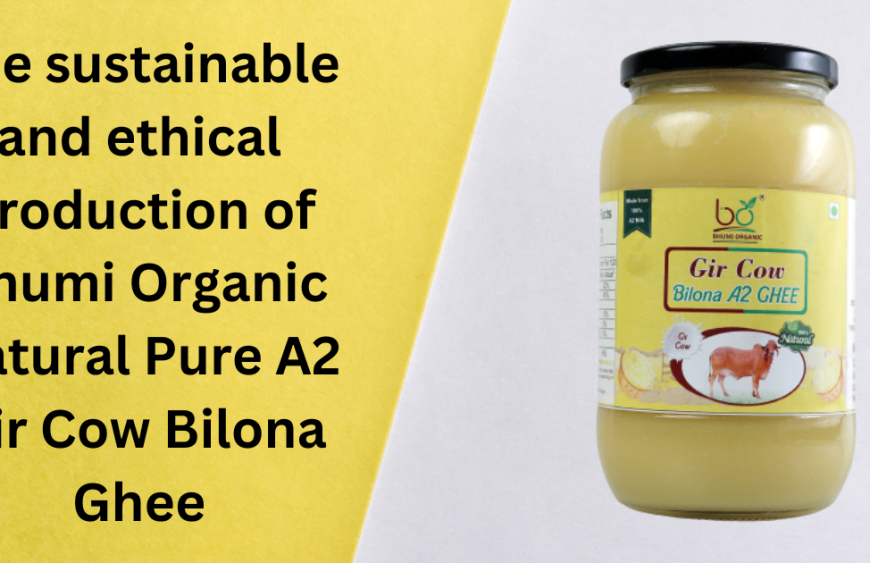The sustainable and ethical production of A2 Gir Cow Bilona Ghee involves adhering to practices that prioritize the well-being of the cows, the environment, and the communities involved in the production process. Here are key aspects of sustainable and ethical production:
1. Cattle Welfare:
- Breeding Practices: Emphasize ethical breeding practices that prioritize the health and welfare of A2 Gir cows. Avoid practices such as overbreeding or genetic modifications that compromise the well-being of the animals.
- Access to Pasture: Allow cows access to open pasture for grazing. A commitment to pasture-based systems promotes natural behaviors, exercise, and a balanced diet.
- No Hormones or Antibiotics: Avoid the routine use of hormones or antibiotics unless necessary for the health of individual animals. Implement responsible veterinary care practices.
2. Traditional Bilona Method:
- Hand-Churning Method (Bilona): Embrace the traditional Bilona method of ghee production, which involves hand-churning the curd obtained from A2 Gir cow milk. This method is considered more labor-intensive but is believed to preserve the natural qualities of ghee.
- Small Batch Production: Opt for small-batch production to maintain quality control and uphold traditional methods, avoiding large-scale industrial processes.
3. Organic and Natural Feeding:
- Organic Feed: Provide cows with organic and natural feed, avoiding the use of synthetic pesticides, herbicides, or genetically modified organisms. This contributes to the production of organic A2 Gir Cow Bilona Ghee.
- Forage and Grazing: Support natural foraging and grazing behaviors, ensuring that the cows have access to a diverse range of nutritious plants.
4. Community Engagement:
- Fair Labor Practices: Ensure fair labor practices for the individuals involved in the production process. This includes fair wages, safe working conditions, and respect for workers’ rights.
- Community Support: Contribute to the well-being of local communities by fostering positive relationships, providing employment opportunities, and supporting local economies.
5. Environmental Stewardship:
- Sustainable Farming Practices: Implement sustainable farming practices that minimize environmental impact. This includes soil conservation, water management, and waste reduction.
- Renewable Energy: Explore the use of renewable energy sources in the production process to reduce reliance on non-renewable resources.
6. Transparent Supply Chain:
- Traceability: Establish a transparent supply chain that allows consumers to trace the journey of A2 Gir Cow Bilona Ghee from the farm to the final product.
- Quality Assurance: Implement quality assurance measures to ensure the consistency and purity of the ghee. Regular testing can verify the absence of contaminants and maintain high-quality standards.
7. Educational Initiatives:
- Consumer Education: Engage in educational initiatives to raise awareness among consumers about the benefits of A2 Gir Cow Bilona Ghee, sustainable farming practices, and ethical production methods.
8. Certifications:
- Organic Certification: Obtain organic certification from recognized authorities to assure consumers that the A2 Gir Cow Bilona Ghee is produced using organic and sustainable practices.
- Animal Welfare Certifications: Consider obtaining certifications that attest to the ethical treatment of animals, such as certifications related to pasture-based systems and humane practices.
Sustainable and ethical production practices for A2 Gir Cow Bilona Ghee involve a holistic approach that considers the well-being of the cows, the environment, and the communities involved. By adhering to these principles, producers can contribute to the promotion of responsible and ethical agriculture.
Related Articles
Recent Comments
Recent Posts
Tags
A2 milk Aged garlic Anti-inflammatory Ayurvedic medicine Bilona method Black garlic bread Black garlic chicken Black garlic extract Black garlic hummus Black garlic mayonnaise Black garlic oil Black garlic paste Black garlic powder Black garlic recipes Black garlic salt Black garlic seasoning Black garlic shrimp Black garlic steak Black garlic supplements Black garlic tofu Black garlic vinegar Butyric acid Conjugated linoleic acid (CLA) Cooking oil alternative Digestive health Fat-soluble vitamins Fermented garlic Gir cow Grass-fed cows Gut bacteria Health benefits Health benefits of black garlic Natural ghee Nutritious fat Omega-6 fatty acid Organic ghee Pure butterfat Pure ghee Rich flavour Roasted garlic Spread alternative Sweet garlic Traditional churning method Traditional Indian ghee Umami flavour





